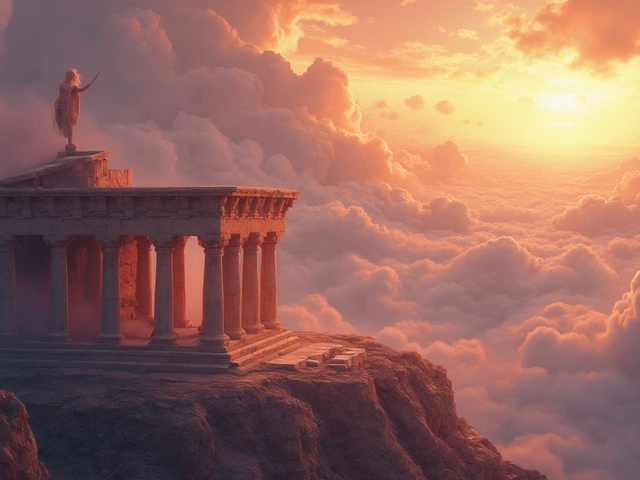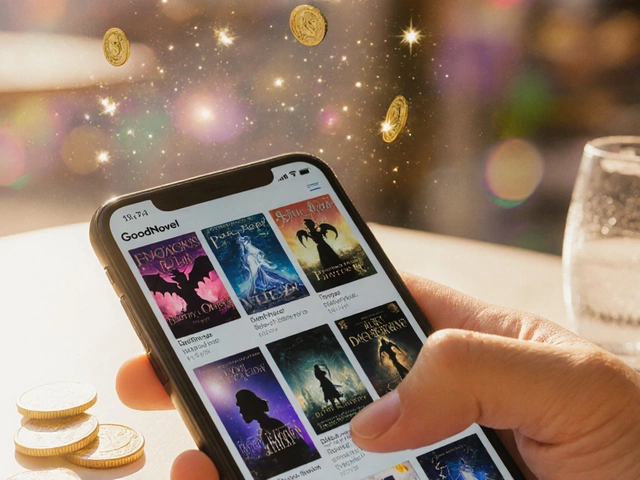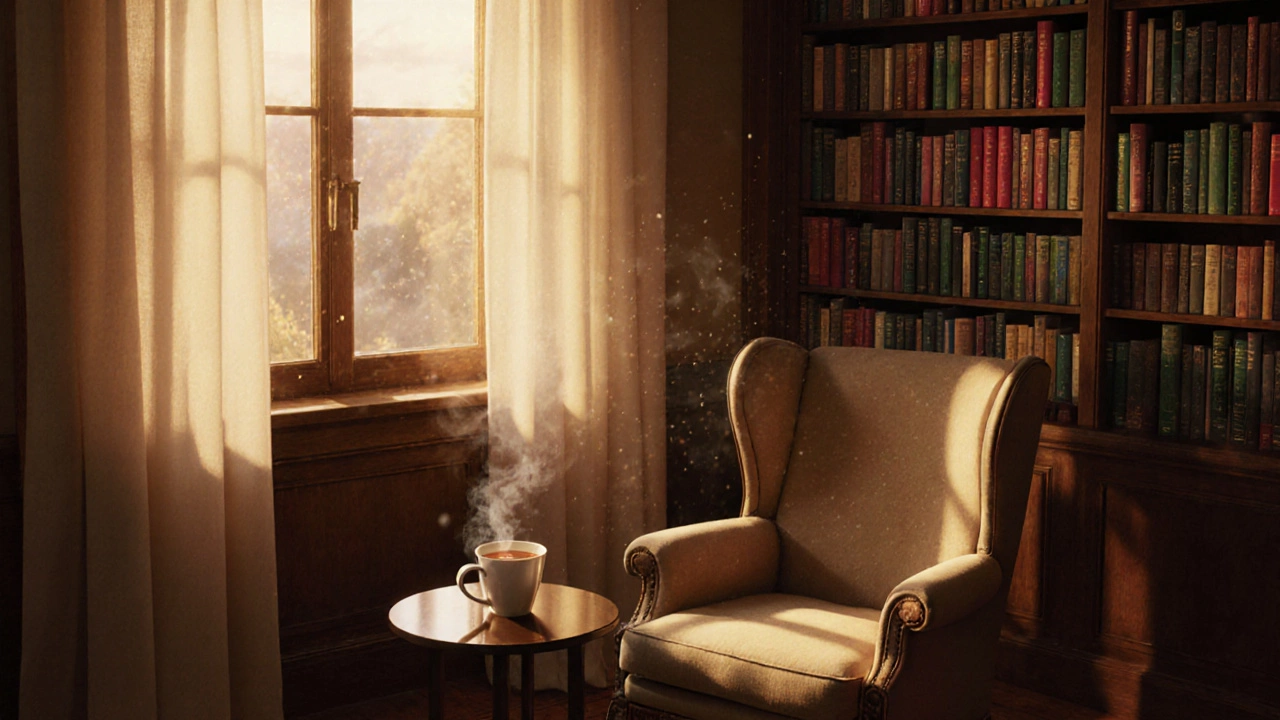
Book Series Finder
When you’re hunting for your next literary binge, a book series is a collection of related novels that share characters, settings, or an overarching plot can be the perfect answer. Instead of picking a single title, you get a world that expands with each installment, letting you settle in for weeks or months of escapism. Below you’ll find a quick cheat sheet, a step‑by‑step guide to match a series to your mood, and curated picks across the biggest genres for 2025.
Key Takeaways
- Identify your preferred genre, length, and commitment level before scrolling.
- Three top series per major genre are highlighted with author, award, and start‑book info.
- A side‑by‑side comparison table helps you spot short‑vs‑long series at a glance.
- Tips for finding the first book - libraries, e‑readers, and audiobook platforms.
- Answers to the most common follow‑up questions in the FAQ.
How to Choose Your Next Series
Before you dive in, answer three quick questions:
- Genre vibe: Do you crave epic world‑building, gritty crime, or a romance that spans decades?
- Time commitment: Are you looking for a quick 3‑book run or a marathon like "The Wheel of Time"?
- Special interests: Mythology, history, or a contemporary setting?
Jotting these down narrows the sea of options dramatically. It also lets you weigh secondary factors-author reputation, award pedigree, or whether a TV adaptation is already pulling in fans.
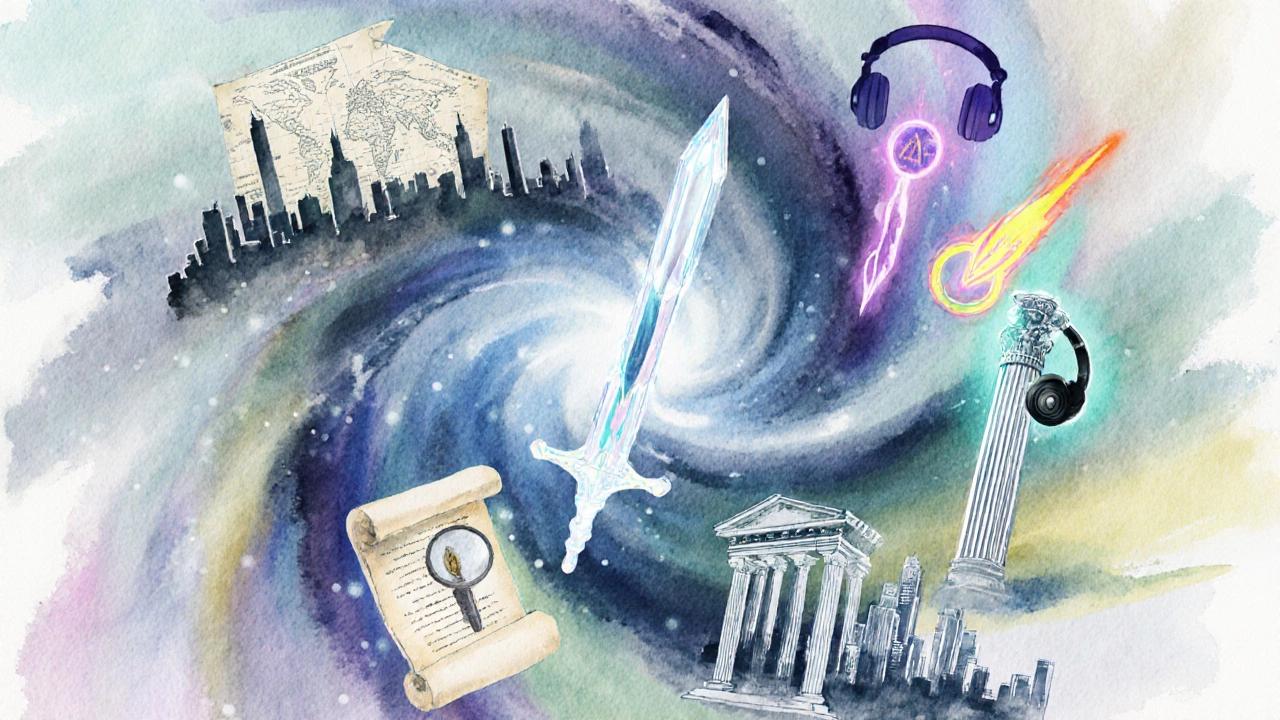
Top Picks Across Popular Genres
Each series below is introduced with its core details - author, debut year, total books released (as of October2025), and any major awards. All entities are marked up the first time they appear.
Fantasy
- "The Stormlight Archive" - Brandon Sanderson, 2010, 5 books, Hugo‑nominee. Known for deep magic systems and sprawling maps.
- "The Kingkiller Chronicle" - Patrick Rothfuss, 2007, 2 books (third due 2026), Locus Award winner. Perfect for lovers of lyrical prose.
- "The Broken Earth" - N.K. Jemisin, 2015, 3 books, Hugo Award (all three). A compact, award‑heavy trilogy.
Thriller / Crime
- "Jack Reacher" - Lee Child, 1997, 28 books, Edgar Award nominee. Action‑packed, stand‑alone novels.
- "The Dublin Murder Squad" - Tana French, 2007, 8 books, Anthony Award winner. Psychological depth + Irish setting.
- "Cormoran Strike" - Robert Galbraith (J.K. Rowling), 2013, 9 books, Crime Writers' Association award. Detective duo with witty banter.
Historical Fiction
- "The Saxon Stories" - Bernard Cornwell, 1982, 13 books, Walter Scott Prize shortlist. Set in England’s Dark Ages.
- "The Century Trilogy" - Ken Follett, 2010, 3 books, Goodreads Choice winner. 20th‑century global sweep.
- "The Last Kingdom" - Bernard Cornwell, 2004, 13 books, award‑winning for realism. Viking‑England clash.
Young Adult
- "The Reckoners" - Brandon Sanderson, 2013, 4 books, Hugo nomination. Super‑heroic dystopia.
- "The Lunar Chronicles" - Marissa Meyer, 2012, 4 books, Goodreads Choice winner. Fairy‑tale sci‑fi mash‑up.
- "The Shadowhunters" - Cassandra Clare, 2007, 12 books, multiple Teen Choice awards. Urban fantasy with romance.
Mythological Fiction
- "The Song of Achilles" - Madeline Miller, 2011, 1 book (stand‑alone), Orange Prize winner. Re‑imagines Homer’s saga.
- "The Golem and the Jinni" - Helene Wecker, 2013, 1 book, National Book Award finalist. Blend of Jewish and Arab folklore.
- "American Gods" - Neil Gaiman, 2001, 1 book, Hugo & Nebula winner. Modern road‑trip with ancient deities.
Short vs Long Series - Quick Comparison
| Series | Genre | Books (as of Oct2025) | Major Award | First Book (Year) |
|---|---|---|---|---|
| The Stormlight Archive | Fantasy | 5 | Hugo nominee | 2010 |
| The Broken Earth | Fantasy | 3 | Hugo (All three) | 2015 |
| Jack Reacher | Thriller | 28 | Edgar nominee | 1997 |
| The Reckoners | Young Adult | 4 | Hugo nomination | 2013 |
| The Song of Achilles | Mythological | 1 | Orange Prize | 2011 |
Notice how the “Broken Earth” trilogy packs award power into a short run, while “Jack Reacher” offers endless plug‑and‑play adventures. Pick the column that matches your calendar.
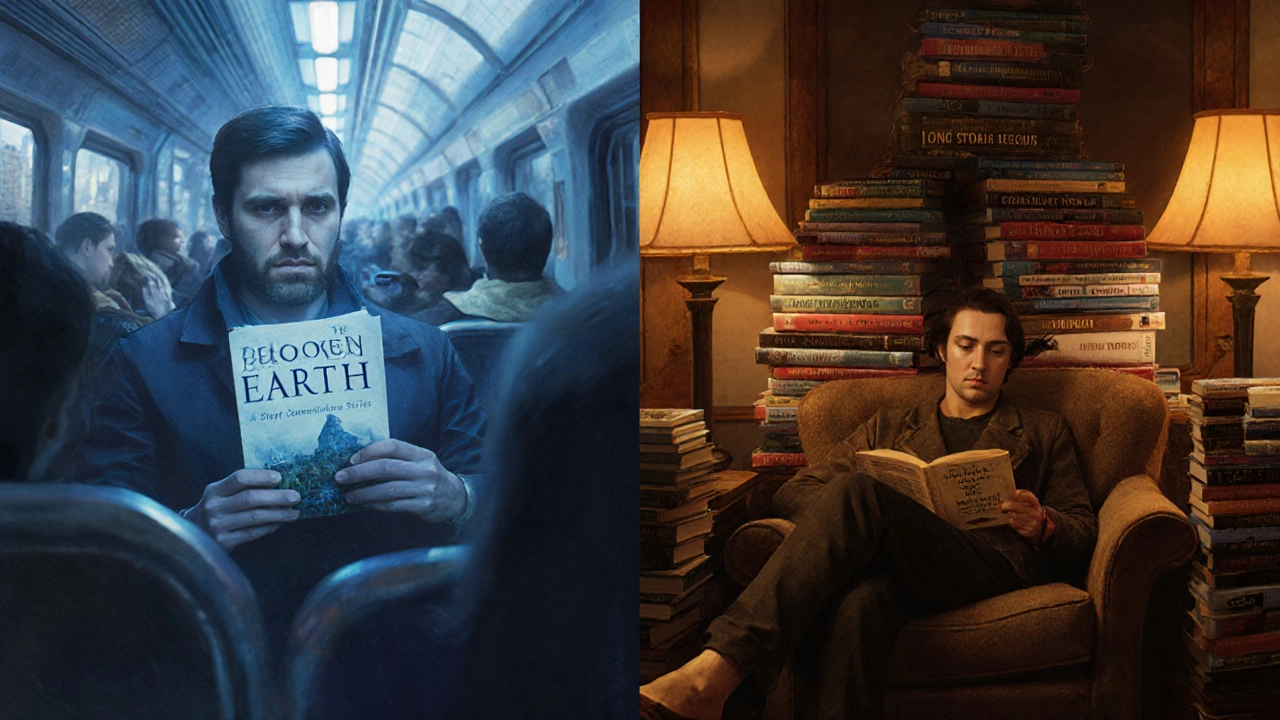
Where to Start - Getting the First Book
- Public libraries: Most series are available in the first volume; ask for inter‑library loan if they’re out of stock.
- E‑readers: Amazon Kindle, Kobo, and Apple Books often have bundled discounts for the first two books.
- Audiobooks: If you commute, try Audible or Scribd - many series release the first installment for free.
- Box sets: When a series is complete (e.g., "The Broken Earth"), buying the box set can be cheaper than individual copies.
Whichever route you take, read the opening chapter before committing to the whole saga. A strong hook usually predicts whether the rest will hold your interest.
Frequently Asked Questions
How many books should a series have for a first‑time reader?
Three to five books is a sweet spot. It lets you get hooked without feeling trapped in a decade‑long commitment.
Are award‑winning series always the best pick?
Awards signal quality, but personal taste matters more. If you love fast‑paced action, a lesser‑known thriller can beat a celebrated literary saga.
Do I need to read series in publication order?
Usually yes, because character arcs and plot threads build gradually. Some series (e.g., "The Kingkiller Chronicle") have optional prequels, but start with the official first book.
Can I jump into a series that already has a TV adaptation?
Definitely. Adaptations often spark interest, but the books usually contain richer world‑building. Just be aware of possible spoilers from the show.
What if I finish a series and want something similar?
Look for the author’s cited influences or the genre’s sub‑category. For example, fans of "The Broken Earth" often enjoy "The Fifth Season"‑style world‑shattering epics like "The Poppy War".
Next Steps & Troubleshooting
Scenario 1 - You have only 30 minutes a day: Choose a short series (3 books max) like "The Broken Earth" or "The Song of Achilles". Their average chapter length is under 10 minutes.
Scenario 2 - You love deep world‑building but fear a long commitment: Start with "The Stormlight Archive" and read only the first two books before deciding. Many readers stop after the second installment if the scope feels too massive.
Scenario 3 - You’re stuck on a series that feels slow: Skip ahead to the next installment. If the pacing still drags, pause the series and try a different genre; you can always return later.
With these tools, you should be able to pick a series that fits your taste, schedule, and curiosity. Happy reading!
